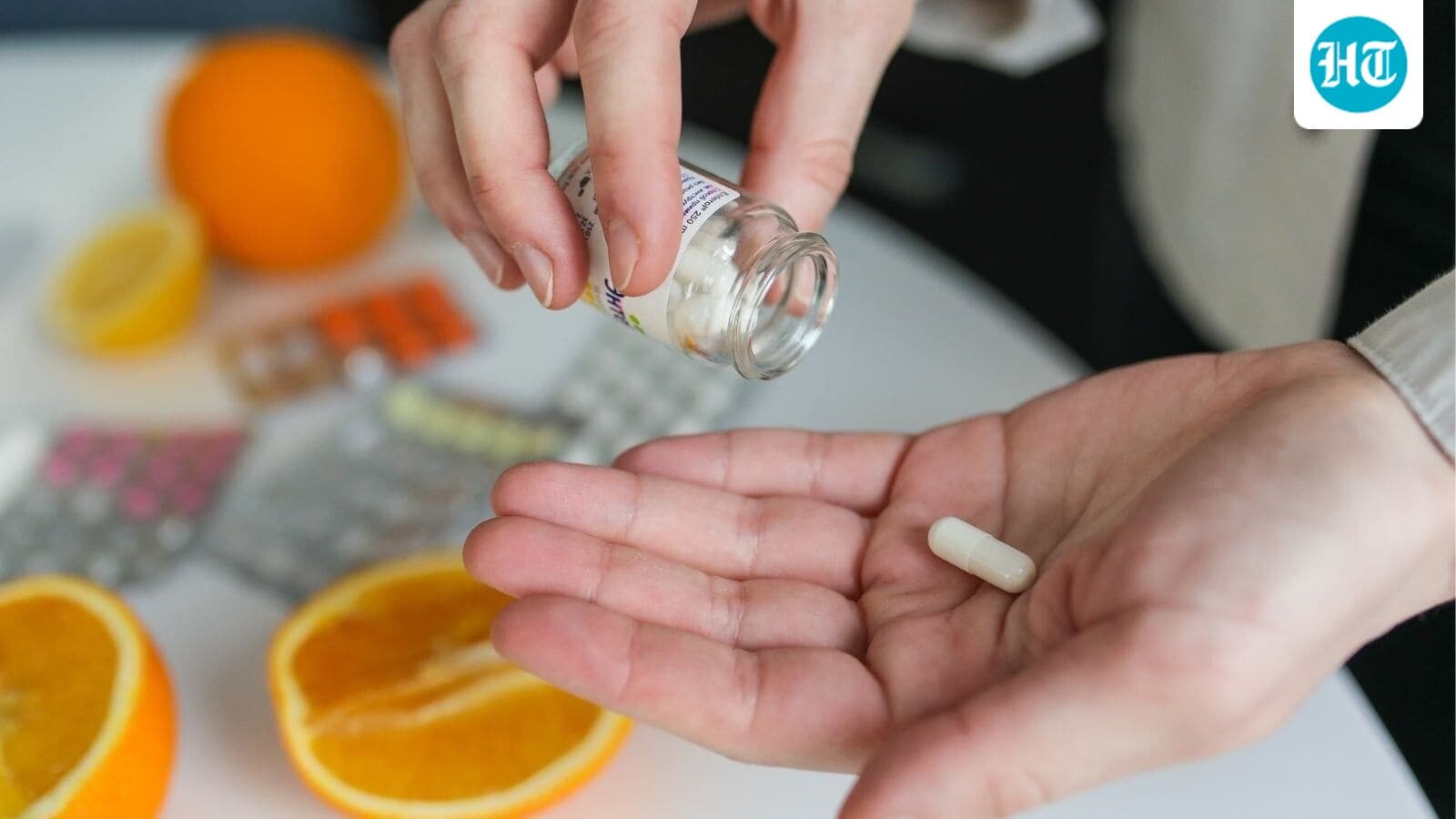Vitamin D is one of the most essential nutrients our body needs, along with calcium, to build bones and keep them healthy. Its deficiency can lead to a loss of bone density, which can contribute to osteoporosis and fractures (broken bones).
 According to Dr Agarwal, the best time is in the morning, with a meal containing healthy fats, which ensures maximum absorption. (Canva )
According to Dr Agarwal, the best time is in the morning, with a meal containing healthy fats, which ensures maximum absorption. (Canva )
According to the National Institutes of Health, vitamin D deficiency prevails in epidemic proportions all over the Indian subcontinent, with a prevalence of 70–100 percent in the general population. Therefore, apart from eating vitamin D fortified foods, exposure to sunlight, and taking supplements are quite necessary.
5 things you should know about taking vitamin D supplements correctly
However, most people take Vitamin D supplements the wrong way. Therefore, educating oneself about the best way to take these medications is the right way to begin one’s journey. In an Instagram post shared on September 13, Dr Shagun Agarwal (MBBS, MS ORTHO, FNB Fellow Joint Replacement) highlighted 5 things you should know before taking it.
1. Best time to take
According to Dr Agarwal, the best time is in the morning, with a meal containing healthy fats, which ensures maximum absorption. “Avoid taking it on an empty stomach,” he cautioned.
2. Sunlight is not always enough
Even in sunny countries, up to 80 percent of people remain deficient. Sunscreen, pollution, and limited outdoor exposure reduce natural synthesis, Dr Agarwal pointed out.
3. Works in combination with calcium
Vitamin D is essential for calcium absorption in bone, the expert pointed out. “Taking Calcium without sufficient Vitamin D may increase the risk of blood artery hardening and kidney stones,” he cautioned.
4. Always monitor your levels
“A 25(OH)D blood test is the gold standard to check Vitamin D status. Avoid taking high doses without medical supervision,” he advised.
5. Excess vitamin D is dangerous
Excessive intake of Vitamin D leads to toxic levels in the body. Dr Agarwal said, “Consequences include high blood calcium, kidney damage and cardiovascular issues.”
He highlighted that these are the mistakes most of his patients often make, and they can change the course of health. “When patients come to me with weak bones, many are surprised when I ask about their vitamin D supplements. Some took it irregularly, thinking sunlight was enough. Some took calcium alone, without vitamin D, and ended up with more harm than benefit,” he explained.
“A few took such high doses of vitamin D that it actually turned toxic for their body. Your health is built step by step. Don’t let one small error undo it. Smarter supplements = Stronger bones,” he added.
Note to readers: This article is for informational purposes only and not a substitute for professional medical advice. Always seek the advice of your doctor with any questions about a medical condition.
This report is based on user-generated content from social media. HT.com has not independently verified the claims and does not endorse them.
